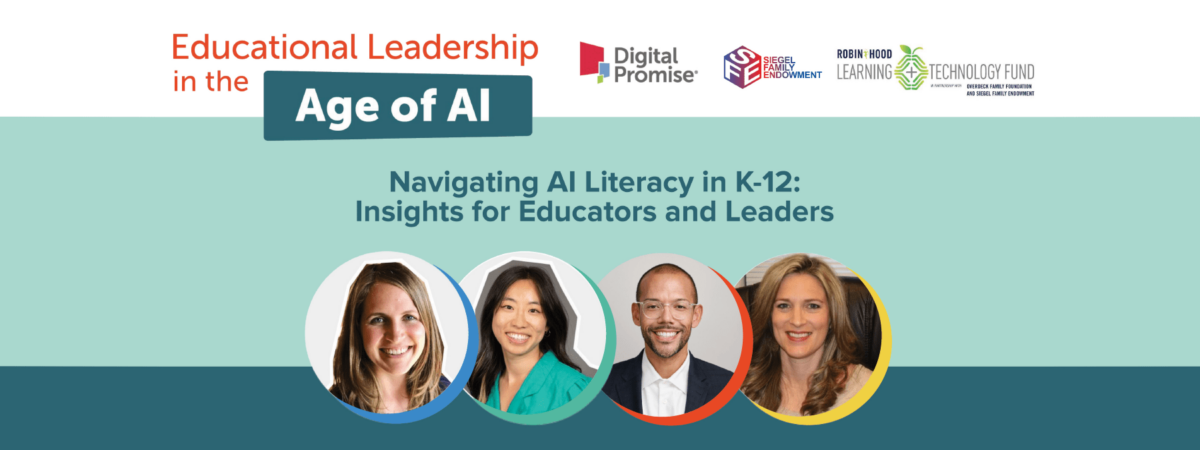
Building on these big ideas, we were joined by expert panelists who shared their insights on integrating AI literacy across school districts. Our panelists included:
The panel discussion, facilitated by Dr. Kelly Mills and Keun-woo Lee from Digital Promise, emphasized four strategies for educators to integrate AI Literacy into K-12 education.
Panelists underscored how AI literacy builds upon existing educational initiatives that foster foundational digital skills. For the past five years, Talladega County Schools has been building on the success of computational thinking (CT) pathways to promote AI literacy. They have partnered with Digital Promise to develop K-12 CT pathways across grade levels, supporting teacher leaders as “experts down the hall” to co-design the pathways, provide professional development, and model lessons to create a common language around computational thinking. Dr. Elder highlighted how AI literacy connects to broader digital literacy efforts, such as the CSforALL movement.
The panelists emphasized the vital role of human judgment when applying AI in any context. Dr. Morgan shared that her teachers were initially uncertain about how AI would impact academic integrity. However, she asserted that many teachers “know their students and know how their students write,” so they can better distinguish authentic student work from AI-produced content.
She also encouraged teachers to design lessons that require students to engage in higher-order thinking that AI lacks, such as emotional intelligence or pulling from personal experience. Dr. Elder agreed, emphasizing the value of computer science education and AI literacy to promote metacognition as a uniquely human skill.
Generative AI as an emerging technology means leaders, educators, and students alike are learning how to navigate AI tools in tandem. Dr. Morgan emphasized that robust teacher training on AI capabilities is essential for student success, exemplified by Talladega County Schools’ annual symposium where more than 100 teachers present their expertise with staff.
Dr. Elder encouraged educators to directly engage in their own AI literacy, sharing that he is also taking an AI course. He believes educators should have space to “play, unpack, and analyze” AI tools to critically evaluate how it produces false outputs.
Centering equity requires leveraging technological infrastructure and curricula accessible to all students. Dr. Morgan highlighted how Talladega County Schools’ CT pathways create an inclusive experience across grades and subjects so that all students have access. They have also worked to provide equitable access through 1:1 device distribution and expanded internet availability via WiFi-enabled buses.
Dr. Elder recommended that access extend into informal environments such as a student’s home. He stressed that the students often “left out of these opportunities are disproportionately impacted by the AI and tech that is advancing so rapidly.”
Looking toward the future, Dr. Morgan and Dr. Elder agreed that AI literacy represents a foundational competency in navigating future success, regardless of student pathway.
This webinar was the third in a series of webinars on educational leadership in the age of AI. Hosted by Digital Promise with support from Siegel Family Endowment and the Robin Hood Learning + Technology Fund, this series informs and supports educational leaders as they plan and adapt their priorities relating to generative AI.
Want to know more about effective, ethical, and equitable uses of AI in education? Below are additional resources to explore: